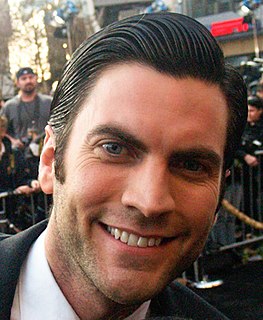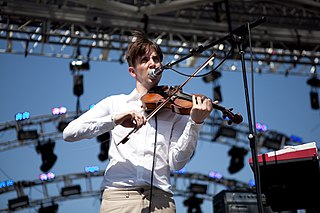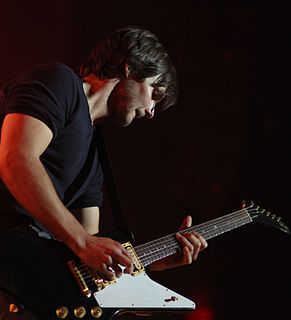A Quote by Gavin Friday
I've always as a performer on stage tend to sort of throw myself into the character, whatever I've written about, so it depends on how I'm writing or what I'm writing about.
Related Quotes
You want to have the experience. As far as the creative side, the more I do this, the more I know that it's all about the writing. You got on a film sometimes and it's sort of half-written, and they expect and think that the actor's job is to bring the extra part and the good part. It's not. We're good at saying what other people have written, but for the majority of it, that's about it, comedians aside. It's all in the writing. Whether that's dialogue or character, or whatever, it doesn't matter. As long as they've done something special, than you can do something special.
I think I have always sort of cultivated a flowery writing style. I've always sort of over - written in every genre that I've attempted. I went to college and took a couple of writing classes and I remember my teachers were always incredibly encouraging. But it was inevitable to get the criticism: "Take it down a notch!" But the nice thing about screenwriting is that you don't really have to.
I was able to notice in a very early stage, there were discrepancies between the people who are writing the songs and discrepancies about the self that I was writing about. I was feeling that there were all these different people, both writing the record and having the record being written about them, even though ostensibly it was me sitting down and documenting a series of life experiences. Part of that, when I recognized this unconscious thing I was doing, was about these spaces, about these gaps.
That's one thing brands are understanding is, I'm the blogger who's not writing about fashion. I'm not writing about beauty. I'm not writing about gossip. I'm not writing about politics. I'm writing about all of that. I'm the person they can come to if they just want to reach people who care and have their fingers on pop culture.
The difference when I'm writing a story versus writing a joke is that writing a joke is so much more about the structure and it's less about the conversation. To me, the thing that I love about stand-up is the intimacy between performer and audience.To get it even more conversational was something that really appealed to me and that I really enjoyed doing. My early experiments with it, with just telling a story from my life on stage, it was so satisfying to do. And seemingly for the audience as well. It's a different thing, and it's a different feeling and a different vibe.
As far as the creative side, the more I do this, the more I know that it's all about the writing. We don't always celebrate that enough, but without the writing, you can't do much. You got on a film sometimes, and it's sort of half-written, and they expect and think that the actor's job is to bring the extra part and the good part. It's not.
I feel like you become a songwriter when you claim that it's sort of like a switch flipped, and you're always writing. Even in your sleep, you're always thinking about it in the back of your mind. The true writing - when you're officially writing - that's just when its front of mind, but its always there. You're always listening for a hook.
I think all writing is about writing. All writing is a way of going out and exploring the world, of examining the way we live, and therefore any words you put down on the page about life will, at some level, also be words about words. It's still amazing, though, how many poems can be read as being analogous to the act of writing a poem. "Go to hell, go into detail, go for the throat" is certainly about writing, but it's also hopefully about a way of living.



































